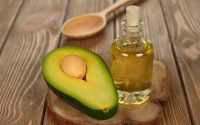Comparison of Cooking Oils and Cholesterol Content
Cholesterol is a type of lipid that serves several necessary purposes in your body, such as making vitamin D in the skin, repairing cell membranes and producing hormones. However, too much can be harmful to the health of your heart and brain. Some cooking oils contain cholesterol while others are cholesterol-free, and making note of these differences can help you choose the right oil for you and your family.

Animal Fat Cooking Oils
Cooking oils that are made from animal fats contain cholesterol. A tablespoon of lard, for example, contains 12 milligrams of cholesterol. That translates to 4 percent of the 300 milligrams of cholesterol healthy adults should limit themselves to each day and 6 percent of the 200 milligrams of cholesterol those following a low-cholesterol diet should have each day. A tablespoon of butter contains 31 milligrams of cholesterol, and a tablespoon of bacon grease has about 12 milligrams.
Tropical Cooking Oils
Tropical cooking oils, such as coconut and palm, are cholesterol-free. If you’re following a low-cholesterol diet, this makes these oils more attractive, but they are high in saturated fat. Because a diet high in saturated fat can, like too much cholesterol, raise your risk of heart disease, it’s important to pay attention to this as well. Further, a diet high in saturated fat can raise your blood cholesterol levels even if the food itself doesn’t contain any cholesterol.
Vegetable Cooking Oils
Vegetable cooking oils are your best bet when it comes to cooking oils and cholesterol concerns. These oils, which include olive, canola, soybean, safflower and sunflower, are low in saturated fat and don’t contain any cholesterol. The oils also contain unsaturated fats, including mono- and polyunsaturated fats, which actually help lower your cholesterol level and reduce your risk of heart disease when used in place of oils that contain saturated fat, according to the American Heart Association.
Making Your Choice
Opt for liquid oils because they are lower in saturated fat than cooking oils that are solid at room temperature, such as butter and lard. Use a small amount of liquid oil to pan-fry and saute foods, recommends the American Heart Association. Replace solid fats, such as shortening, with liquid oils in rice, stir-fries, cream sauces, soup and baked goods recipes as well.


